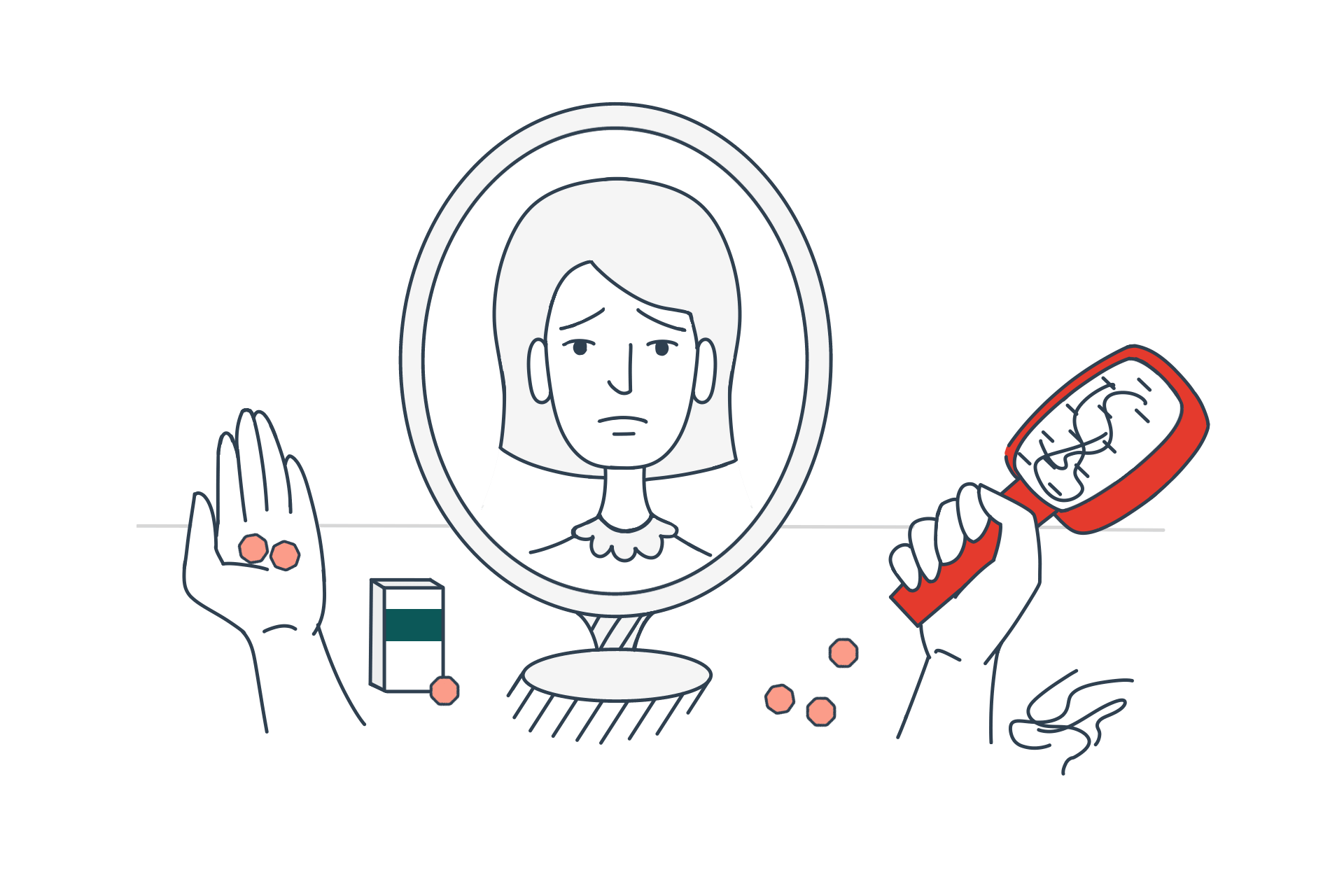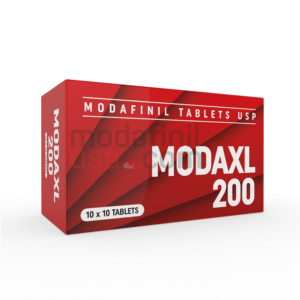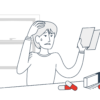Does Propecia Work for Women’s Hair Loss?
Propecia is a popular medication used to treat pattern hair loss or baldness in men. Because of how effective it is, many women wonder whether it will be equally effective for remedying their hair loss concerns. If this is something you’re contemplating, you’ll discover comprehensive information in this guide, covering details about possible side effects and alternatives that have been shown to be both safe and effective. Let’s get started.
What Is Propecia?
Propecia is the brand name for the generic drug finasteride, which is also available under the brand name Proscar. While Proscar is specifically designed to treat symptoms of an enlarged prostate, Propecia is only used to treat pattern baldness (androgenetic alopecia) in men. The Food and Drug Administration (FDA) approved it for this purpose in 1997, and it has been one of the first-line treatments for the condition ever since [1].
Finasteride, the active ingredient in Propecia, belongs to a class of drugs called 5-alpha-reductase inhibitors. It works by inhibiting or blocking the action of the enzyme 5-alpha-reductase, which is responsible for converting testosterone into dihydrotestosterone (DHT). High levels of DHT cause hair follicles to shrink over time in individuals with male pattern baldness, resulting in thinner, stunted hair that eventually falls out.
By reducing the levels of 5-alpha-reductase, Propecia effectively slows down the hair loss process and promotes the growth of healthy hair. Note that contrary to popular belief, the drug cannot completely halt hair loss, nor can it stimulate the growth process for hair that has been permanently lost [2].
Propecia comes in a dose strength of 1 mg to be taken once daily. In most cases, the effects of the drug become noticeable after 3 months of consistent use, as directed by a doctor [3]. Generic versions of the drug are available, often at a significantly lower cost compared to the brand-name counterpart, with some generics selling for as low as 10 times less. It is advisable to consult a doctor before taking this medication.
Can Propecia Be Effective & Safe for Female Hair Loss?
What happens if a woman takes Propecia? Considering how effective and safe the medication has proven to be for men, one would assume it would work the same way for women. If you’re wondering, Does Propecia work for women?” the answer is yes. However, while it can technically work for women, it’s not recommended due to the serious risks it may pose.
Several studies and trials conducted over time have shown that finasteride, a medication specifically developed for men, can also help reduce hair loss and even improve hair thickness in women. In a 2006 study involving premenopausal females, 62% noticed an improvement in their hair density after 1 year of taking 2.5 mg of finasteride alongside a drospirenone-based birth control pill [4]. In another trial conducted in 2014 with postmenopausal women, 82% of participants saw an improvement in hair thickness after being placed on 1.25 mg of the medication every day for 3 years [5].
However, while the most recent studies regarding the safety and effectiveness of Propecia in females may indicate potential benefits, the evidence is not as conclusive as it is for men. The risks of side effects tend to be worse. More research needs to be conducted to determine its safety and effectiveness in both the short and long term. In a nutshell, while Propecia proves to be effective for female hair loss, it may not be really safe.
Side Effects Caused by Finasteride in Women
Some of the common side effects reported in the reviews of women who have used finasteride include [6]:
- acne;
- low sex drive;
- headache;
- irregular menstruation;
- dizziness;
- increased body hair growth;
- folliculitis.
This medication may cause more severe adverse effects in women, especially if more than the recommended dosage is taken. Some of them include itching, skin rash, swelling of the face, nipple sensitivity/discharge, and difficulty swallowing or breathing. It may also cause tenderness, pain, lumps, or swelling of the breasts. It is advisable to seek urgent medical attention if you take finasteride and are experiencing any of these adverse effects. They can worsen and even become life-threatening if left untreated.
One of the most serious warnings associated with the use of Propecia is for expectant and breastfeeding mothers to avoid it. Because of its impact on testosterone levels, it can cause birth defects in the genitalia of unborn children. It may also affect breastfeeding babies in unexpected ways. It is important for pregnant women and those planning to become pregnant to avoid even the slightest contact with a broken Propecia tablet, as its ingredients could be absorbed through the skin, causing birth defects [7].
Possible Alternative Meds for Female Hair Loss
Below are several alternative medications to Propecia available for female hair loss [8]:
- minoxidil (Rogaine): It is a topical hair loss solution that has been shown to be effective in retaining hair and promoting the growth of healthy hair. The ointment works by improving blood flow to hair follicles and stimulating hair to regrow. As only a minimal amount of the applied solution enters the bloodstream, it does not cause any internal side effects. FDA-approved for use in both men and women, it is readily accessible as an over-the-counter med;
- spironolactone (Aldactone): It belongs to a class of medications called potassium-sparing diuretics (water pills). It is a serious medication that is more commonly used to reduce fluid build-up in the body, typically caused by kidney disease, heart failure, and liver scarring. Spironolactone also improves hair loss by inhibiting and ultimately reducing the effects of androgens, a hormone that plays a role in hair loss. Unlike Rogaine, you’ll need to get prescribed to use it;
- oral contraceptives: Birth control pills are sometimes recommended for the treatment of hair loss in women. The pills work by reducing the production of ovarian androgens, which contribute to hair loss.
Regardless of the chosen medication or treatment option to prevent hair loss, it is important to seek advice from a doctor. This will help prevent unwanted side effects that may result from interactions with other medications, supplements, or existing medical conditions. Always consult with a doctor before starting treatment with any medication.
Conclusion
Propecia has been shown to reduce hair loss and promote healthy hair growth in women, similar to its effects in men. However, caution is advised for females considering its use, as side effects tend to be more pronounced. The drug is contraindicated in pregnant women and breastfeeding mothers due to the risk of causing birth defects.
If you’re a woman looking to use this drug to prevent hair loss or improve the thickness or density of your hair, it is advisable to exercise caution, weighing potential risks against benefits. Instead of taking Propecia, consider using FDA-approved alternatives such as Rogaine that were specifically designed to treat men and women.
Always consult your doctor or healthcare professional to help determine the safety of any medication you intend to take. They can help you decide if it is safe and suitable for you based on your specific health needs.
References
- Propecia: Uses, Dosage. and Side Effects. By Emily Rekstis and the Healthline Editorial Team. Medically reviewed by Amanda Caldwell, MSN, APRN-C. Retrieved: November 19, 2023. Healthline.com.
- Propecia Oral: Uses, Side Effects, Interactions, Pictures, Warnings, & More. Retrieved: November 19, 2023. Webmd.com.
- Propecia (Finasteride): Uses, Dosage, Side Effects, Interactions, and Warnings. Medically reviewed by John P. Cunha, DO, FACOEP. Retrieved: November 19, 2023. Rxlist.com.
- Finasteride for Hair Loss. By Ross Phan, PharmD, BCACP, BCGP, BCPS. Medically reviewed by Christina Aungst, PharmD. Retrieved: November 19, 2023. Goodrx.com.
- Finasteride and Its Potential for the Treatment of Female Pattern Hair Loss: Evidence to Date. By Wimolsiri Iamsumang, Kanchana Leerunyakul, and Poonkiat Suchonwanit. Retrieved: November 19, 2023. Ncbi.nlm.nih.gov.
- Finasteride Side Effects in Women. By the Forhers Editorial Team. Reviewed by Vicky Davis, FNP. Retrieved: November 19, 2023. Forhers.com.
- Finasteride: Side Effects, Dosage, Uses, and More. By the University of Illinois. Medically reviewed by Femi Aremu, PharmD. Retrieved: November 19, 2023. Healthline.com.
- Treating Women’s Hair Loss: Rogaine, Medications, Estrogen, and More. By WebMD Editorial Contributors. Medically reviewed by Stephanie S. Gardner, MD. Retrieved: November 19, 2023. Webmd.com.








![How to Get Viagra in the US Without Prescription [Super-Fast Shipping]](https://buygenerics.com/wp-content/uploads/2023/11/how-to-get-viagra-in-the-us-without-prescription-super-fast-shipping-100x100.png)







